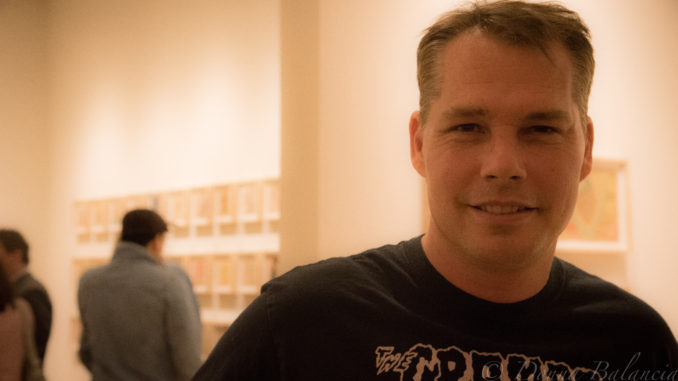
By DONNA BALANCIA
He’s known for street art, his OBEY clothing line, and political activism, but it’s his desire to help others that powers the success of Shepard Fairey.
Fairey is featured in an exhibit called “Beyond the Streets” that runs from May 6 to July 6 on Main Street in downtown Los Angeles.
See Shepard Fairey and Henry Rollins
The activist artist took time to chat with Donna Balancia of CaliforniaRocker.com about how he runs his life and his work.
Work with ‘Like-Minded’ People
“I’ve always tried to connect with like-minded people,” Fairey said. “People out there from skateboarding to punk rock to gallerists — people who could work with me. If you just believe in the connection of creative tastes everything else will eventually fall into place. I always have had a belief in my vision. Sometimes things don’t crystalize commercially right away because there are so many variables.”
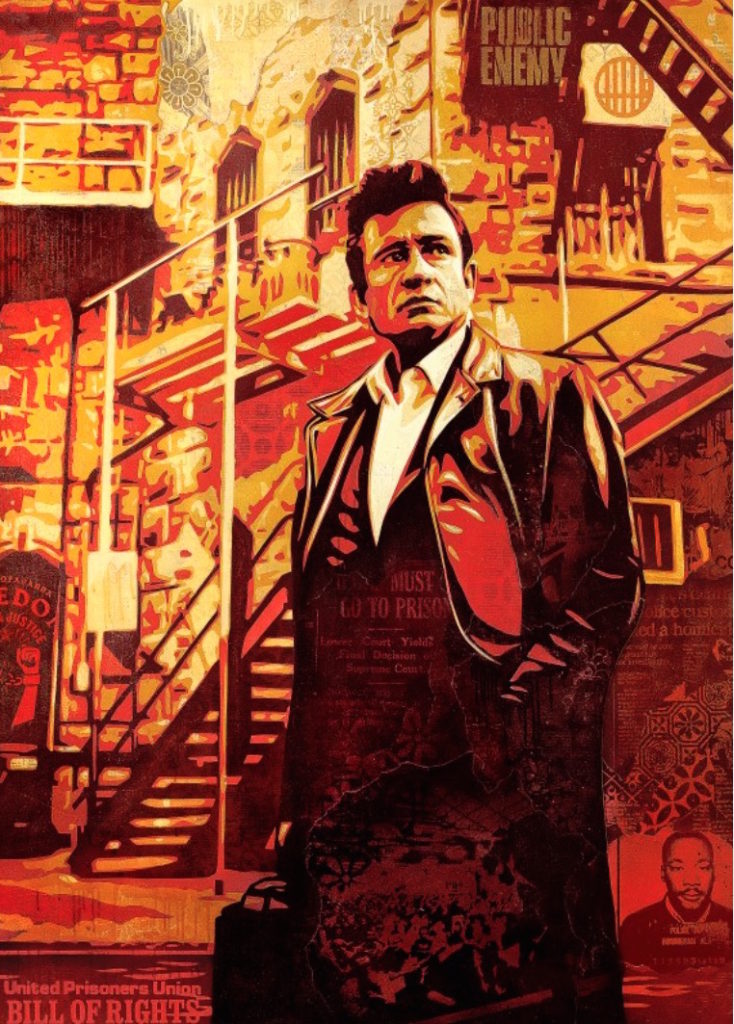
Fairey and Aggro Promo Techniques
Fairey was always aggressive in his promotional techniques, and it’s clear he belongs to the “Don’t ask permission, beg forgiveness” school of life. Since his early days in San Diego, he would slap posters and stickers bearing his designs everywhere from light poles to handrails to electrical boxes. Fairey has even been arrested many times for pursuing his street art, which often challenges the status quo with political statements.
He said his straight-to-the-point personality came from the training he received in art school.
“My art teachers said a variety of things,” Fairey said. “Take slides to every gallery and pay attention to what’s going on in the art world. Others said ‘Be practical, but still paint on the weekends.'”
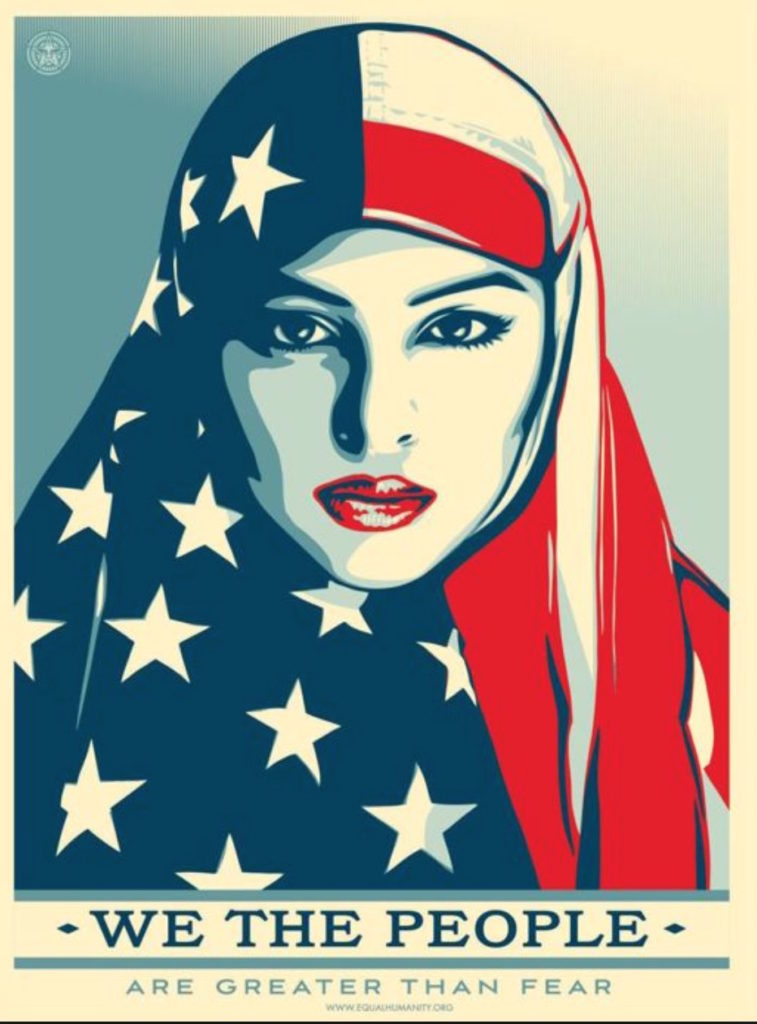
Teachers Believed in Him Despite his Non-Conformist Attitude
The teachers believed in him, even when his processes were, well, different. In 1990 he plastered a poster of Andre the Giant across the billboard for an election candidate.
“I had teachers that believed in what I was doing,” he said. “I changed around the board in 1990. That teacher said to the class ‘Can anyone make the case for this not being an A?'” That was cool. But teachers have egos and I had teachers who didn’t agree with the content or the style of my work. What I learned in art school was to be my own harshest critic. Only I knew if only I knew if I was rigourous enough in my technique and my executiion and my ideas to be satisfied with what I came up with.”
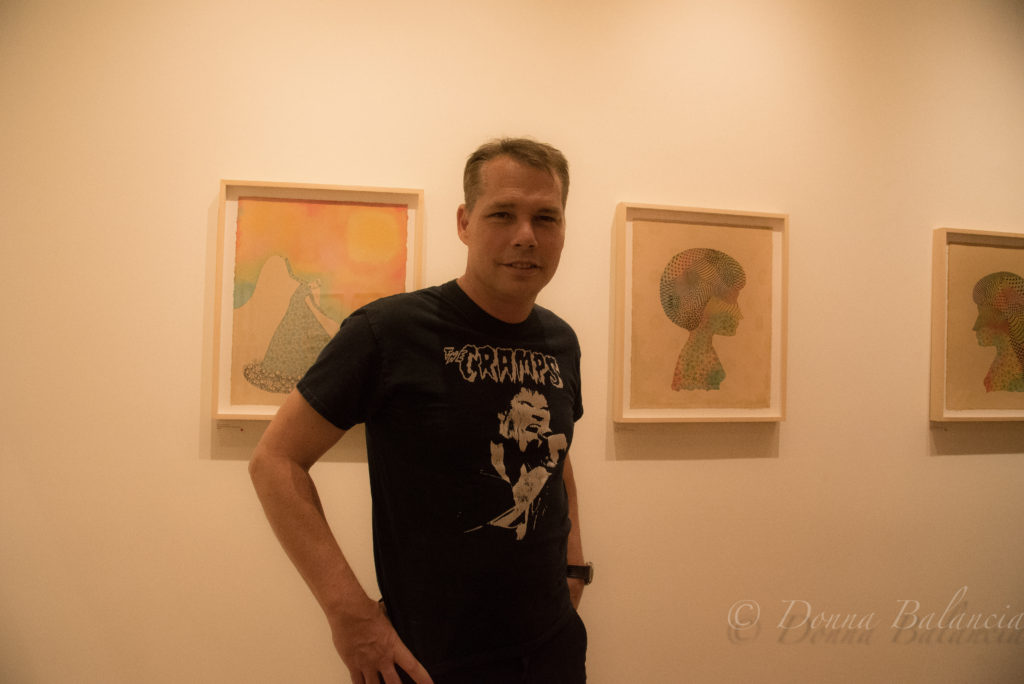
Fairey Brings Together Art + Promotions in DIY Style.
“When someone says ‘I love this’ or that, I’m a lightning rod there’s a lot of praise and a lot of criticism. I trust my own feelings as much as I can with all the time that’s possible.”
In building the OBEY company out, did he apply that philosophy?
“With the company I knew this is what I want to do, people who seem to have the philosophical alignment and the skill set that come to me, they’re not always the ones who have the best resume or are most charismatic, but it’s a feeling of trust and authenticity and that’s served me well.”
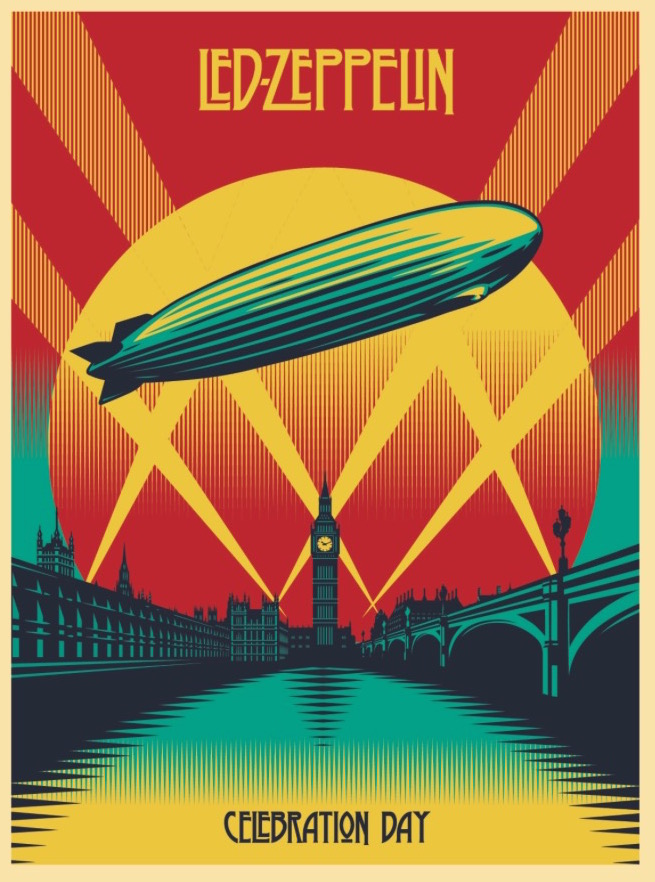
No Get Rich Quick Schemes for Fairey
“In clothing especially, there’s a lot of people who want to exploit the trends,” he said. “The trends, get-rich-quick mentality in that world. There were people who said we could take the company and make billions of dollars. As soon as I’d hear that I said ‘Nope.’ My personal art and social justice is also closely tied with what happens in my clothing line. I have to be careful about what I do with my clothing line in ways that other people don’t have to be.”
Fairey goes the distance to make sure everything related to him has positive repercussions.
“We do a lot of stuff with fair trade factories,” he said. “We do a thing every season, an awareness program which is where all the profits go to a charity like 350.org, dealing with climate change; or amplifier.org, dealing with sexism, or the genocide at Darfur, Adopt a Pet … There are a zillion things I care about.
“But other brands don’t do that stuff, for them it’s exploiting trends and making a profit,” he said. “Of course I want my business to do well but I won’t compromise my values.”
Skateboarding and the World of Art by Shepard Fairey
If there were one thing to point to as a most important influence on Fairey it’s skateboarding.
“Skateboarding changed my life, I still skate,” he said. “Skateboarding introduced me to the Dead Kennedys, Black Flag, The Clash, and Bob Marley even. The culture, the rebelliousness. It’s a way of looking at the landscape differently. Handrails, ledges; it’s a new place to put posters.”
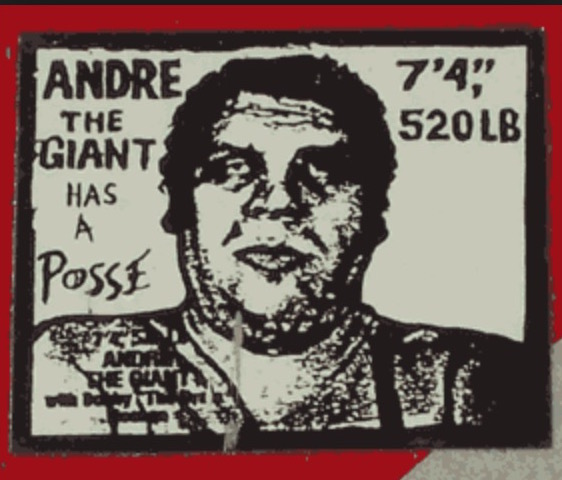
Fairey: Stick with Grass Roots Marketing
“What I say to people is take every platform you can utilize,” he said. “I started before the Internet so I did it the grassroots way, think about stuff on the street people would see in their daily lives. From a place of sedate safety. But going out in the streets and seeing something someone’s done without permission is visceral, it’s different. Molecules colliding matters. Looking at shit on a computer screen is not what life’s about.”
What’s coming up?
“There’s a film that just came out about my life on Hulu called ‘Obey Giant.’ I have a big show in Vienna in May, and Aspen in June. I’ve also done work for a museum in Alabama.”
And then there’s the music-related work.
He’s done the album artwork for musicians ranging from Blondie to Led Zeppelin. For Zeppelin, he did artwork for Mothership, a greatest hits collection, and Celebration Day. There are some additional collaborations in the works.
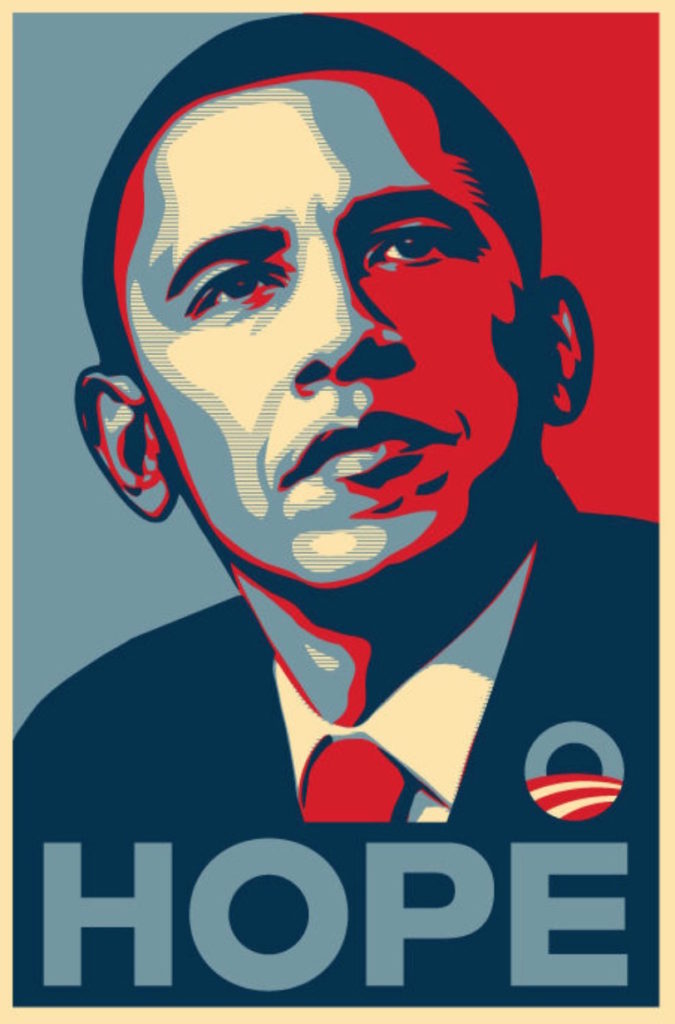
Fairey’s Socio-Political Issues and Resolution
Fairey said generally he tries to take the most accepted socio-political approach to help eradicate issues.
“There are lot of groups with a lot of different opinions,” he said. “What I say is that differences in skin color are what created the problems in the first place, defining yourself that way.
“Why don’t we define ourselves as philosophically aligned or not aligned, and not by skin color?” he asked. “But I’m sensitive that these are things I can empathize with, but can’t relate to first hand. I always want to be respectful of the right way to do the right thing.”
